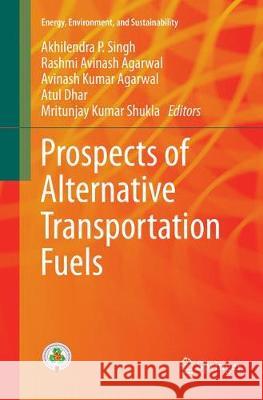Prospects of Alternative Transportation Fuels » książka
topmenu
Prospects of Alternative Transportation Fuels
ISBN-13: 9789811356476 / Angielski / Miękka / 2018 / 405 str.
Kategorie:
Kategorie BISAC:
Wydawca:
Springer
Seria wydawnicza:
Język:
Angielski
ISBN-13:
9789811356476
Rok wydania:
2018
Wydanie:
Softcover Repri
Ilość stron:
405
Waga:
0.68 kg
Wymiary:
23.11 x 22.86 x 1.78
Oprawa:
Miękka
Wolumenów:
01











